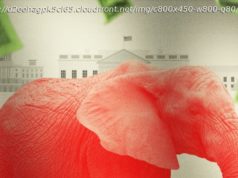A look back at the esteemed personalities who’ve left us this year, who’d touched us with their innovation, creativity and humanity.
A look back at the esteemed personalities who left us this year, who’d touched us with their innovation, creativity and humanity.
Russian opposition leader Alexey Navalny (June 4, 1976-February 16, 2024) became an international symbol of freedom in an increasingly autocratic country, as he led a crusade against corruption in the Kremlin, specifically President Vladimir Putin’s United Russia party, which he labeled « the party of crooks and thieves. » And he never stopped railing against his government, even after he was targeted with politically-motivated prosecutions, imprisoned, and even poisoned with Novichok, in an attempt on his life that captured the attention of the world.
An attorney who did a fellowship at Yale University, Navalny gained notoriety by attacking corruption within Russia’s political and business worlds. By focusing on the notion of ordinary Russians being cheated rather than on human rights abuses, Navalny’s investigations (such as revealing the ostentatious country estates of the politically-connected) went viral on social media, resonating with younger Russians far from Moscow and St. Petersburg. It helped him establish a network of regional offices for his group, the Anti-Corruption Foundation, and allowed unprecedented rallies against the ruling party, protesting suspicious election results.
He was convicted in 2013 of embezzlement (he denounced the charges as political retribution) and was sentenced to five years in prison, but later released, his sentence suspended following protests in the capital.
Navalny did espouse an overt nationalism – he supported the rights of ethnic Russians, and the annexation of the Crimean Peninsula by Russia, a move decried by the rest of the world as illegal – but his continued attacks on Putin made him an internationally-known resistance figure. He ran for mayor of Moscow, coming in second.
While in jail in 2019 for protesting an election, Navalny fell ill with what authorities said was an allergic reaction, but doctors said was poisoning.
In August 2020, Navalny became severely ill on a flight from the Siberian city of Tomsk to Moscow. He later told « 60 Minutes, » « I said to the flight attendant – and I kind of shocked him with my statement – ‘Well, I was poisoned, and I’m going to die.’ And I immediately laid down under his feet. »
The plane diverted to Omsk, where he was hospitalized. Supporters begged doctors to allow him to be taken to Germany for treatment. Once there, doctors surmised he’d been poisoned with a nerve agent similar to what nearly killed former Russian spy Sergei Skripal and his daughter in England two years earlier. Navalny remained in a medically-induced coma for around two weeks.
The Kremlin denied it was behind the poisoning, but Navalny released a recording of a phone call in which an FSB officer admitted the assassination attempt and subsequent attempt to cover it up. [The call was the centerpiece of the Oscar-winning documentary « Navalny, » filmed during his recovery and later return to Russia.]
His arrest upon arrival in Moscow in early 2021 sparked protests that resulted in more than 10,000 people detained by police. A court then outlawed the Anti-Corruption Foundation, deeming it an extremist organization.
While in prison, he protested, via social media, the Russian invasion of Ukraine, and received an additional nine-year sentence. Later, on charges he called fabricated, Navalny was sentenced to 19 years in prison, which he understood was « a life sentence, which is measured by the length of my life or the length of life of this regime. »Seiji Ozawa
Born in China of Japanese parents, internationally-acclaimed conductor Seiji Ozawa (September 1, 1935-February 6, 2024) lived a life blending the cultures of East and West. He led the Boston Symphony Orchestra from 1973 to 2002 (longer than any other conductor in the orchestra’s history), and from 2002 to 2010 was music director of the Vienna State Opera.
While he was a student in Japan, Ozawa suffered a rugby accident in which he broke two fingers. It ended his piano playing, but his music teacher suggested he take up conducting instead.
In 1960 came to the U.S. and attended the Tanglewood Music Center, where he was spotted by New York Philharmonic conductor Leonard Bernstein, who appointed him assistant conductor for the Philharmonic’s 1961-62 season. Making his New York debut at age 25, The New York Times praised Ozawa: « The music came brilliantly alive under his direction. »
Ozawa led various groups, including orchestras in San Francisco and Toronto, before being named head of the BSO in 1970. The first Asian conductor to reach such professional levels in the West, he brought star quality and a tremendous physicality to the podium, and helped raise the international reputations of both Boston’s orchestra and the music center at Tanglewood.
His presence extended beyond the concert hall. In 1998 he led choruses on five continents in a live-via-satellite performance of Beethoven’s Ninth Symphony for the opening of the Nagano Winter Olympic Games. He earned two Emmys for his TV broadcasts, and in November 2022 he beamed a performance of Beethoven’s « Egmont » Overture to Japanese astronaut Koichi Wakata at the International Space Station, as part of the « One Earth Mission – Unite with Music » initiative.
« Music can link the hearts of people – transcending words, borders, religion, and politics, » Ozawa said in a statement. « It is my hope that through music, we can be reminded that we are all of the same human race living on the same planet … and that we are united. »
He also co-founded the Saito Kinen Orchestra in 1984 (they won a Grammy for best opera recording in 2016), and was artistic director and founder of the Seiji Ozawa Matsumoto Festival, a music and opera festival in Japan. He received a Kennedy Center Honor in 2015.
Speaking with « Sunday Morning » in 1998, Ozawa likened leading an orchestra to skiing. « When I conduct, concentration is most important that moment, and I forget everything but that moment, this music. Ski, I think, same, when you come down slow, you cannot think other things, just have to concentrate. »Toby Keith
A singer, actor, and businessman, country artist Toby Keith (July 8, 1961-February 5, 2024) thought of himself first and foremost a songwriter. « God’s gift to me was to be a writer, » he told « Sunday Morning » in 2006, « and that’s what I do best of all, and I’m as gifted at that as anybody. » Gifted enough to sell 40 million records and run his own record label.
Keith grew up in Oklahoma, played a bit of semi-pro football, and worked in the oil fields until jobs dried up. All the while, he struggled to make it in country music. When his debut album was released in 1993, the song « Should’ve Been a Cowboy, » went to #1 on the country charts.
He would log 42 Top 10 hits on the Billboard country charts, with 20 peaking at #1, including « How Do You Like Me Now?!, » « I Wanna Talk About Me, » « I Love This Bar, » « Whiskey Girl, » « As Good As I Once Was, » « Red Solo Cup, » and « Beer For My Horses » (a duet with Willie Nelson).
But the song that made Keith a superstar was his emotional response to the attacks of 9/11. He said that he wrote « Courtesy of the Red, White and Blue » in 20 minutes, just days after the attacks, partly as a tribute to his father, a veteran. Subtitled « The Angry American, » the song doesn’t mince words:
You’ll be sorry that you messed with the US of A,
because we’ll put a boot in your ass,
it’s the American way.
The song brought him much attention, pro and con, including a public feud with the Dixie Chicks’ Natalie Maines, who called it ignorant. Keith rode the song and the controversy all the way to the bank.
He followed with « American Soldier, » which become a favorite of U.S. forces overseas, many of whom attended his USO tours. But standing with the troops didn’t mean he stood with America’s decision to go into Iraq. « When the Iraq war started, I was a little mad because we didn’t finish what we started in Afghanistan, » he told « Sunday Morning.






